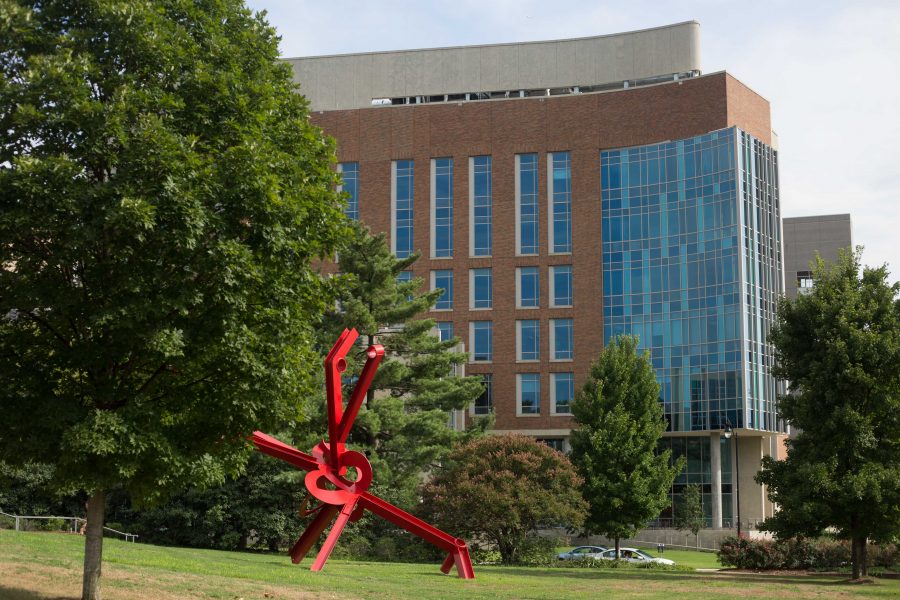At the Mobility Expo on Nov. 7, Chancellor Nicholas Zeppos announced that Vanderbilt has been awarded $4.5 million for mobility research focused on finding greener alternatives to traditional transportation. The grant is part of a federal program that funds sustainable transportation projects.
Chancellor Zeppos gave opening remarks at the expo, emphasizing Vanderbilt’s commitment to innovation. As part of his opening comments, Zeppos unveiled MoveVU, a campus mobility strategy that is part of FutureVU.
“We are on the cutting edge of every new thing. Part of that is there are scooters here now, whether we like it or not,” Zeppos said. “I tell all the students: a car is the worst investment you will ever make, it’s a depreciating asset.”
Vanderbilt has announced that it will match the federal government’s $4.5M grant, bringing the total to $9M being put towards eco-friendly transportation efforts. This money will help fund MoveVU, which features a focus on sustainability and de-emphasis of single-occupancy vehicles.
“We’d like to get to zero emissions – currently one third of our emissions come from transportation,” Zeppos said. “We have to evolve if we are going to move the needle.”
Tennessee Department of Transportation Commissioner John Schroer joined Zeppos in speaking at the expo. Schroer shared that he and Zeppos recently met with the Mayor of Nashville to discuss transportation, citing Vanderbilt as a “micro world” to experiment with mobility options.
“This 4.5 million dollar grant will help us move our transportation initiative forward,” Schroer said.
The Mobility Expo also showcased efforts Vanderbilt has put forth in the realms of sustainability, campus safety, and research on transportation. Displayed research included analysis of GPS data from the Ofo pilot on campus; an examination of parking on campus; and data on how faculty and staff commute to campus.
During the event, the Wond’ry was decorated with posters that highlighted MoveVU initiatives. One poster was titled “Parking and the VU Campus: Is this the highest use of our precious land?” And another, on sustainability, calculated the land of surface lot parking space to be worth $30,648, with maintenance of one parking space to be $120 per month.
Another research poster described Vanderbilt’s plan to deploy devices around campus that measure environmental and air quality measures, including light, sound pressure, carbon monoxide, and ozone.
While the implementation of MoveVU is yet to begin, one thing is clear: the demolition of Towers isn’t the only change that students can expect to see on campus in coming years. If all goes according to the MoveVU plan, students can expect a greener, more sustainable campus.



